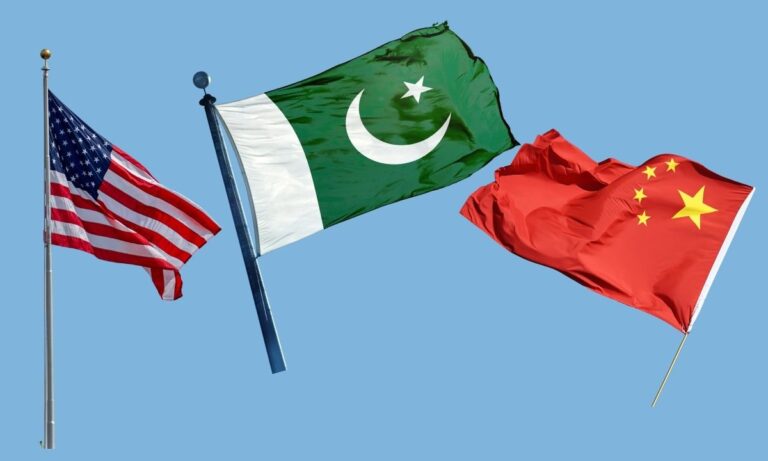Pak-US ties have become sour and the US is looking for a remedy. Since his arrival, Donald Blome, the American ambassador, has put in a lot of effort to lobby in Pakistan.
First, he has been on a trip to the PTI-ruled province of KPK. Later, he visited the PPP-ruled province of Sindh.
The objective of the US Ambassador seems to be to settle the dust on relations between the two countries. Unfortunately, the PTI narrative against the US led to increasing hatred against the US.
US Ambassadors visits Sindh to improve Pak-US ties
Ambassador Blome met with the Federal Minister for Maritime Affairs, the Chief Ministers of Balochistan and Sindh, the Administrator of Karachi, the Commander of the Pakistan Navy’s Pakistan Fleet (COMPAK), government officials, financial and business leaders, trade and energy executives, and other business and commercial representatives during his visit.
Hiring a Lobbying firm in the US by PTI has irked PML-N
“I am delighted to be back in Karachi, a thriving financial and commercial centre,” said Ambassador Blome.
This year marks the 75th anniversary of bilateral relations between the United States and Pakistan. I look forward to strengthening U.S.-Pakistan partnerships in trade, investment, clean energy, health, security, education, and other mutually beneficial priority areas.
Ambassador Blome visited Port Qasim and met with Faisal Subzwari, the Federal Minister for Maritime Affairs.
The Ambassador inquired how the United States could collaborate with Pakistan to establish more ties with American port and maritime institutions.
During his meetings with Balochistan Chief Minister Abdul Quddus Bizenjo and Sindh Chief Minister Murad Ali Shah, the Ambassador discussed political, economic, and security issues and ongoing relief efforts to mitigate the tragic effects of recent flooding in both provinces.
During his meeting with Sindh Chief Minister Shah, Ambassador Blome announced that the United States would provide a new $1 million grant.
It will help to strengthen the resilience of agricultural communities in Sindh Province and assist Pakistan’s disaster management authorities in Sindh, Khyber Pakhtunkhwa, and Gilgit-Baltistan provinces in responding more effectively to future disasters.
Ambassador Blome and Karachi Administrator Murtaza Wahab discussed the effects of flooding and other challenges in the city, as well as growth opportunities, including those in the information technology industry.
In addition, during his meeting with COMPAK Vice Admiral Ovais Bilgrami, the Ambassador discussed relief efforts in flood-ravaged areas and reaffirmed the significance of the U.S.-Pakistan military relationship and the desire to strengthen and expand our ongoing security cooperation.
Ambassador Blome met with Imran Nasrullah, the CEO of Cargill Pakistan. The Ambassador also visited Excelerate’s floating storage and regasification unit at Port Qasim to emphasize our shared desire for the success of Engro and Excelerate’s LNG joint venture in Pakistan.
He met with U.S. and Pakistani business leaders to demonstrate his dedication to promoting U.S. business and investment in Pakistan through a vast array of efficient services, products, and programs.
The U.S. government is committed to strengthening ties between the American and Pakistani peoples to promote a more stable, secure, and prosperous future for both nations. In 2021, bilateral trade reached nearly $9 billion.
The United States is Pakistan’s largest export market and one of its most significant sources of foreign investment, with U.S. direct investment increasing by 50 percent over the previous year.
U.S. companies and their local affiliates are among Pakistan’s largest employers, with approximately 80 U.S. companies employing more than 125,000 Pakistanis, directly and indirectly, employing more than one million Pakistanis. In 2021, U.S. companies will invest up to $5,7 million in corporate social responsibility projects in Pakistan.
Ambassador Blome visited the Lincoln Corner Karachi at Liaquat Memorial Library, where he inaugurated the StartUp Lab! alongside Minister of Sindh for Education, Culture, Tourism, Antiquities, and Archives Syed Sardar Ali Shah was one of the highlights of his time in Karachi.
Ambassador Blome remarked, “The StartUp Lab! is a one-of-a-kind space in Pakistan where aspiring entrepreneurs with startup business ideas can use the latest technology and equipment for free to turn their ideas into reality.”
The interpersonal ties between the United States and Pakistan are one of our greatest strengths. “We are pleased to partner with the Culture Department of Sindh to ensure that young Pakistanis are prepared for the challenges of the 21st century,” stated Ambassador Blome.
The Lincoln Corner Karachi is one of 18 American Spaces in the United States Mission to Pakistan’s nationwide network that offers young Pakistani leaders free access to educational and cultural programs and technology and information resources.
Ambassador Blome also went to Karachi’s Frere Hall to admire its architecture and murals. There, representatives of the NGO Sindh Exploration and Adventure Society (SEAS), Dr. Asma Ibrahim, and Dr. Kaleemullah Lashari gave him a tour.
The U.S. Ambassadors Fund for Cultural Preservation (AFCP) awarded SEAS a grant in 2021 to renovate portions of Frere Hall. This AFCP project demonstrates our continued appreciation for Pakistan’s rich cultural heritage.
In honor of Pakistan’s National Minority Day, the Ambassador met with religious minority community leaders in Karachi to promote interfaith cooperation, religious tolerance, and religious diversity.
Ahead of Pakistan’s 75th Independence Day, he also visited the Mausoleum of Pakistan’s founding father, Quaid-e-Azam Muhammad Ali Jinnah, and laid a wreath in his honor.
“It is a great honor for me to pay my respects and honor the legacy of Muhammad Ali Jinnah at the Mazar-e-Quaid.
Ambassador Blome stated that the United States shares Quaid-e-vision Azam’s of a unified Pakistan at peace with itself and its neighbors, characterized by religious tolerance, economic prosperity, and social inclusion.




